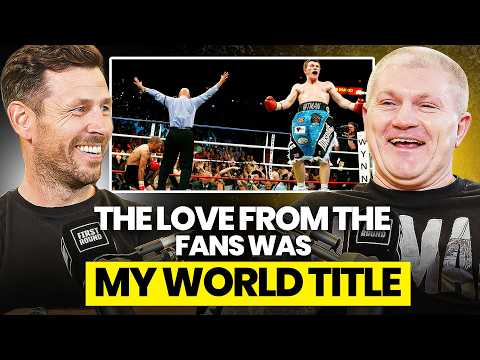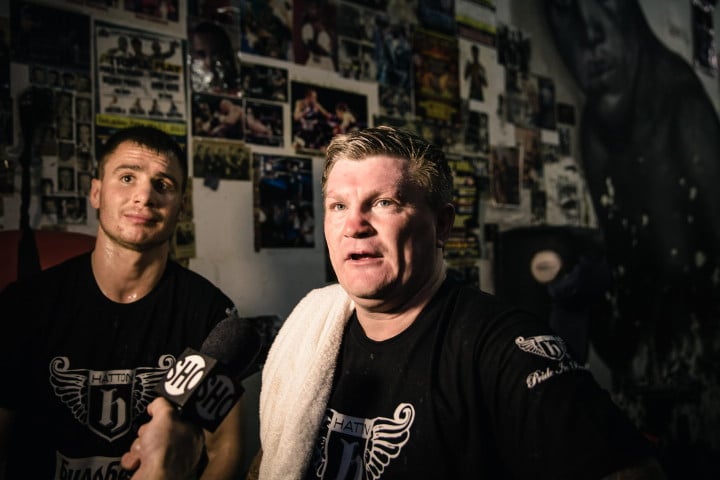Ricky Hatton was never the polished superstar type. He wasn’t made for velvet ropes or soft-focus tributes. He was Manchester to the bone — cheeky, working-class, loyal. And four days before his death at 46, he said what mattered most to him, he wanted to be remembered as “one of the boys”.
The man we knew as The Hitman was found dead at his Manchester home on Sunday, September 14. The shock ripped through British boxing and beyond. He’d spent decades throwing hooks that made arenas shake, yet what he craved wasn’t more belts or headlines. It was belonging — being loved like Frank Bruno, adored by his own city, and accepted by fans who saw themselves in him.

“I Was a Man of the People”
Speaking to former world champion Darren Barker in what became his last interview, Hatton laid it bare. “I am so proud when people say ‘our Frank’ and ‘our Ricky’,” he said. “I am not saying we were the best but we were probably the two most loved. I was a man of the people, a jack-the-lad, the boy-next-door, who couldn’t give two s**** and said it the way it is. The best thing that came out of my retirement was the love that I got from the fans.”
He added, “I would rather be Ricky Hatton than the greatest of all time but have everyone think I’m a d***head.” For a fighter who packed 22,000 into the MEN Arena and 30,000 into Las Vegas, that says it all. People remember me as a helluva fighter but also as one of the boys.”
Fame Never Changed the Kid From the Estate
Hatton told Barker his life stayed close to its roots even after glory. “Life changed for me and my kids and my family the moment I beat Kostya Tszyu. But I don’t think I changed too much. Even today, the gym that I run and the house that I have are all only 10 minutes away from the council estate I grew up on. I haven’t moved out of a 10-mile radius.”
“Even with all the nice things I achieved through boxing, I still go down my local and play darts on a Monday night and play football for the vets on a Sunday afternoon. My mates now are still the same mates I went to school with, no late newcomers, always the same mates.”
That stubborn loyalty — to pubs, to mates, to Manchester City, to the same old streets — was what fans felt. He was a hero who could walk into any pub and not have to buy a pint. Kids who never saw him fight live still stop him for photos because they’ve seen the clips and sensed the realness.
Fighting His Own Shadows, Helping Others With Theirs
Hatton didn’t hide that life after boxing hurt. The losses to Mayweather and Pacquiao left scars, and depression followed. But he refused to stay down. He got help. Then he used his pain to help others.
“If I can speak to someone about mental health and tell them to get it off their chest and not hold it in… I get letters in the post from people I have helped or inspired,” he said. “That helps me, because it makes me feel good that I have helped others.”
He stayed in the gyms, training young fighters, passing on lessons earned the hard way. “Some of my boxers tell me they have paid their mortgages off and thank me — that’s what it’s all about for me.”
A Fighter Who Never Left Us Behind
Hatton didn’t want statues or sainthood. He wanted to be the lad from down the street who made it big but never looked down on anyone. That’s rare in boxing — or anywhere. And maybe that’s why the news of his death cuts so deep.
He lived through brutal nights, public defeats, private battles, and still found the strength to tell a bullied kid to keep his chin up just days before he left us. If that’s not greatness, what is?
Rest easy, Rick. You were one of us. And always will be.
Watch the full interview:
Last Updated on 09/30/2025
Read the full article here

